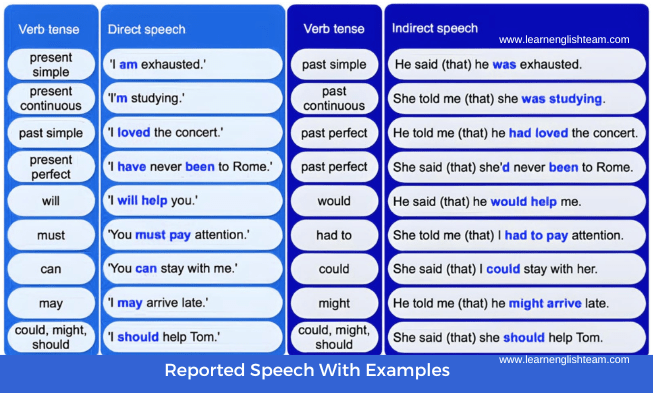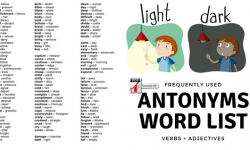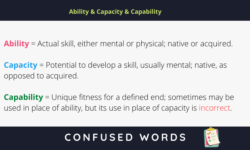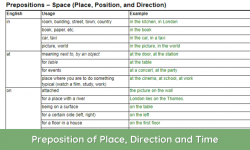
Reported speech - 1
Reported speech - 2
Reported speech - 3
Worksheets - handouts

Reported speech
Worksheets - pdf exercises.
- Reported statements - worksheet
- Worksheet - reported questions
- Reported yes/no questions
- Worksheet - reported speech
- Reported speech - exercises pdf
- Indirect speech - exercises
- Reported speech - exercises
- Mixed reported speech 1
- Mixed reported speech 2
- Reported speech 1
- Reported speech 2
- Reported speech 3
- Reported speech 4
- Reported speech 5
- Reported wh- questions
- Reported speech - worksheet
- Reported commands
- Reported questions
- Reported speech 1
- Reported speech 2
- Reported requests and orders
- Reported speech exercise
- Reported questions - worksheet
- Indirect speech - worksheet
- Worksheets pdf - print
- Grammar worksheets - handouts
Grammar - lessons
- Reported speech - grammar notes
- How to use reported speech - lesson
- Tense changes - grammar
Reported speech exercises PDF
- English grammar PDF
- PDF worksheets
- Mixed PDF tests
- Present tenses
- Past tenses
- Future tenses
- Present perfect
- Past perfect
- Future perfect
- Irregular verbs
- Modal verbs
- If-conditional
- Passive voice
Reported speech
- Time clauses
- Relative clauses
- Indirect questions
- Question tags
- Imperative sentence
- Gerund and infinitive
- Direct | indirect object
- Online exercises
- Grammar rules PDF
English grammar books PDF
PDF book 1: English grammar exercises PDF
PDF book 2: English grammar rules PDF
PDF exercises with answers to download for free.
Reported speech PDF exercise 1
Key with answers 1
- Complete sentences: "It is too late." - I said it was too late.
Reported speech PDF exercise 2
Key with answers 2
- A multiple choice choice test: "Sam may contact you." - He said Sam might contact me.
Reported speech PDF exercise 3
Key with answers 3
- Reported speech to direct speech: She said she lived in York. - "I live in York," she said.
Reported speech PDF exercise 4
Key with answers 4
- Time in reported speech: We will set off tomorrow." - They said they would set off the next day.
Reported speech PDF exercise 5
Key with answers 5
- Correct mistakes: "I have been with Jill since yesterday," said Joe on Friday morning. On Friday morning Joe said he had been with Jill since yesterday. Correct: On Friday morning Joe said he had been with Jill since the day before .
Reported speech PDF exercise 6
Key with answers 6
- All changes in reported speech: Tim said he had worked with them the previous month. - "I worked with them last month," said Tim.
Reported questions + commands exercises PDF Practise questions, commands and requests in the reported speech.
Online exercises with answers:
Direct and indirect speech exercises Multiple choice and gap-filling exercises on reported statements, questions and commands.
Grammar rules PDF:
Reported speech rules PDF Changes of tenses, pronouns, time and place in reported statements, questions and commands.
English grammar PDF All PDF rules with examples on this website to download for free.
The reported speech is used if we want to report what other people said, thought or felt. We use reporting verbs such as say, tell, explain, think, hope, etc. If these verbs are in the past tense, we change the following: a) verb tenses and verb forms b) pronouns c) adverbs of time and place
A) Verb tenses
We change the tenses in the following way.
- Present simple - past simple: "I work in York," Joe said. - Joe said (that) he worked in York.
- Present continuous - past continuous: "We are playing a game," Jane explained. - Jane explained (that) they were playing a game.
- Past simple - past perfect simple: "Sarah came back," I thought. - I thought (that) Sarah had come back.
- Past continuous - past perfect continuous: "I was talking to our new neighbour," Ben told me. - Ben told me (that) he had been talking to our new neighbour.
- Present perfect simple - past perfect simple: "I have eaten all sandwiches," he admitted. - He admitted (that) he had eaten all sandwiches.
- Present perfect continuous - past perfect continuous: "I have been driving for three hours," he comnplained. - He complained (that) he had been driving for three hours.
- Will - would I will wait outside the station," he reminded me. - He reminded me (that) he would wait outside the station.
Note: Some modal verbs change in a specific way, whereas other verb forms remain the same in special cases.
Read more: Direct and indirect speech
B) Pronouns
Personal pronouns
We have to change pronouns in the reported speech to keep the same meaning. "We are in Italy," he said. - He said they were in Italy. "They invited us," Betty said. - Betty said they had invited them. "I admire your new garden," she told me. - She told me she admired my new garden. "You can take my car," Peter said. - Peter said I could take his car.
This and these
This and these are usually substituted. "They will move this year," my mum said. - My mum said they would move that year. "I like these shoes," Tim insisted. - Tim insisted he liked the shoes.
C) Time and place
The time expressions change as follows.
now - then, today - that day, tomorrow - the next day/the following day, the day after tomorrow - in two days' time, yesterday - the day before, the day before yesterday - two days before, next week/month - the following week/month, last week/month - the previous week/month, a year ago - a year before/the previous year
Marion: "I will do it tomorrow." - Marion said she would do it the next day. Dan: "We arrived last week." - Dan said they had arrived the previous week. Judith: "Brian got married a year ago." - Judith said Brian had got married a year before.
Here and there
Here usually becomes there . But sometimes we have to make different adjustments. "I'll stay here till the evening," he said. - He said he would stay there till the evening. In the hospital: "We'll meet here." - He said they would meet in the hospital.
- All PDF exercises and grammar rules from this website.

Reported Speech with Examples and Test (PDF)
Reported speech is used when we want to convey what someone else has said to us or to another person. It involves paraphrasing or summarising what has been said , often changing verb tenses , pronouns and other elements to suit the context of the report.
*doesn’t change
Formula of Reported Speech
The formula for reported speech involves transforming direct speech into an indirect form while maintaining the meaning of the original statement. In general, the formula includes:
- Choosing an appropriate reporting verb (e.g., say, tell, mention, explain).
- Changing pronouns and time expressions if necessary.
- Shifting the tense of the verb back if the reporting verb is in the past tense.
- Using reporting clauses like “that” or appropriate conjunctions.
- Adjusting word order and punctuation to fit the structure of the reported speech.
Here’s a simplified formula:
Reporting Verb + Indirect Object + Conjunction + Reported Clause
For example:
- She said (reporting verb) to me (indirect object) that (conjunction) she liked ice cream (reported clause).

Here’s how we use reported speech:
Reporting Verbs: We use verbs like ‘say’ or ‘tell’ to introduce reported speech. If the reporting verb is in the present tense, the tense of the reported speech generally remains the same.
If the reporting verb is in the past tense , the tense of the reported speech often shifts back in time.
Tense Changes: Tense changes are common in reported speech. For example, present simple may change to past simple, present continuous to past continuous, etc. However, some verbs like ‘would’, ‘could’, ‘should’, ‘might’, ‘must’, and ‘ought to’ generally don’t change.
Reported Questions: When reporting questions, we often change them into statements while preserving the meaning. Question words are retained, and the tense of the verbs may change.
Reported Requests and Orders: Requests and orders are reported similarly to statements. Reported requests often use ‘asked me to’ + infinitive, while reported orders use ‘told me to’ + infinitive.
Time Expressions: Time expressions may need to change depending on when the reported speech occurred in relation to the reporting moment. For instance, ‘today’ may become ‘that day’ or ‘yesterday’, ‘yesterday’ might become ‘the day before’, and so forth.
Reported Speech with Examples PDF
Reported Speech PDF – download
Reported Speech Test
Reported Speech A2 – B1 Test – download
You May Also Like


Mastering Antonyms: A Comprehensive Guide for English Learners

Difference Between Ability, Capability, Capacity ✅

Preposition of Place, Direction and Time
Reported Speech Exercises (With Printable PDF)
| Candace Osmond
| Grammar , Quizzes
Candace Osmond
Candace Osmond studied Advanced Writing & Editing Essentials at MHC. She’s been an International and USA TODAY Bestselling Author for over a decade. And she’s worked as an Editor for several mid-sized publications. Candace has a keen eye for content editing and a high degree of expertise in Fiction.

In English grammar, reported speech is used to tell someone what another person said. It takes another person’s words (direct speech) to create a report of what they said (indirect speech.) With the following direct and indirect speech exercises, it will be easier to understand how reported speech works.

Reported Speech Exercise #1
Complete the sentence in the reported speech.
Reported Speech Exercise #2
Fill in the gaps below with the correct pronouns required in reported speech. Ex. Mary said: “I love my new dress!” Sentence: Mary said ____ love ____ new dress. Answer: she, her
Reported Speech Exercise #3
Choose the correct reported speech phrase to fill in the sentences below.
Grammarist is a participant in the Amazon Services LLC Associates Program, an affiliate advertising program designed to provide a means for sites to earn advertising fees by advertising and linking to Amazon.com. When you buy via the links on our site, we may earn an affiliate commission at no cost to you.
2024 © Grammarist, a Found First Marketing company. All rights reserved.
Reported Speech - Free PDF Worksheets
Reported speech is when you tell someone else what someone else said. It's often used when talking about conversations or something someone else said in the past. When using reported speech, the tense often changes, pronouns and time expressions may also change. For example, "She said, 'I am going to the party'" becomes "She said that she was going to the party."
Select English level:
English Grammar Online Exercises and Downloadable Worksheets
- Reported Speech
All downloads are in PDF Format and consist of a worksheet and answer sheet to check your results.
Levels of Difficulty : Elementary Intermediate Advanced
- RS002 - Reported Speech - Questions Intermediate
- RS003 - Reported Speech - Questions Intermediate
- RS004 - Reported Speech - Indirect Commands Intermediate
Online Exercises
- Gerund - Infinitive
- Adjective - Adverb
- Modal Verbs
- Passive Voice
- Definite and Indefinite Articles
- Prepositions
- Connectives and Linking Words
- Quantifiers
- Question and Negations
- Relative Pronouns
- Indefinite Pronouns
- Possessive Pronouns
- Phrasal Verbs
- Common Mistakes
- Missing Word Cloze
- Word Formation
- Multiple Choice Cloze
- Prefixes and Suffixes
- Key Word Transformation
- Editing - One Word Too Many
- Collocations
- General Vocabulary
- Adjectives - Adverbs
- Gerund and Infinitive
- Conjunctions and Linking Words
- Question and Negation
- Error Analysis
- Translation Sentences
- Multiple Choice
- Banked Gap Fill
- Open Gap Fill
- General Vocabulary Exercises
- Argumentative Essays
- Letters and Emails
- English News Articles
- Privacy Policy

IMAGES
COMMENTS
Reported speech : worksheets pdf, printable exercises, handouts. Direct and indirect speech for esl.
DIRECT SPEECH REPORTED SPEECH *The above examples also depend on where the reported statement is being made. For example, if the above reported statements are being made while the person reporting the information is still in the same place where the conversation took place, the reported speech could also be: Kevin asked if I had been here before.
Change the sentences with reported speech to sentences with direct speech. 1. The professor said that he would correct the tests on Saturday. 2. Natalia asked where the cafeteria was. 3. The doctor explained that he would operate on Tuesday. 4. My mother said that she was tired. 5. Greta told me not to leave so early. 6.
Reported speech. PDF exercises with answers to download for free. Reported speech PDF exercise 1. Key with answers 1. Complete sentences: "It is too late." - I said it was too late. Reported speech PDF exercise 2. Key with answers 2. A multiple choice choice test: "Sam may contact you." - He said Sam might contact me. Reported speech PDF exercise 3
Formula of Reported Speech. The formula for reported speech involves transforming direct speech into an indirect form while maintaining the meaning of the original statement. In general, the formula includes: Choosing an appropriate reporting verb (e.g., say, tell, mention, explain). Changing pronouns and time expressions if necessary.
Reported Speech - PDF Grammar Worksheet - B1 - RS011 Author: Nikolaus ROSMANITZ Subject: Reported Speech - PDF Grammar Worksheet - B1 \(Intermediate\) Created Date: 1/23/2021 8:18:22 AM ...
B1 Reported Speech RS007 Change the sentences to reported speech! 1. He said to me, "Where have you been?" He asked me _____ . 2. My dad said, "Go to your room at once." My dad ordered me ... Reported Speech - PDF Grammar Worksheet - B1 - RS007 Author: Nikolaus ROSMANITZ
In English grammar, reported speech is used to tell someone what another person said. It takes another person's words (direct speech) to create a report of what they said (indirect speech.) With the following direct and indirect speech exercises, it will be easier to understand how reported speech works.
Improve your English grammar skills with our free PDF worksheets on Reported Speech. Practice converting statements and questions in reported form. Reported Speech - Free PDF Worksheets. Home. Worksheets. Reported Speech. Reported speech is when you tell someone else what someone else said. It's often used when talking about conversations or ...
All downloads are in PDF Format and consist of a worksheet and answer sheet to check your results. Levels of Difficulty : Elementary Intermediate Advanced RS002 - Reported Speech - Questions Intermediate